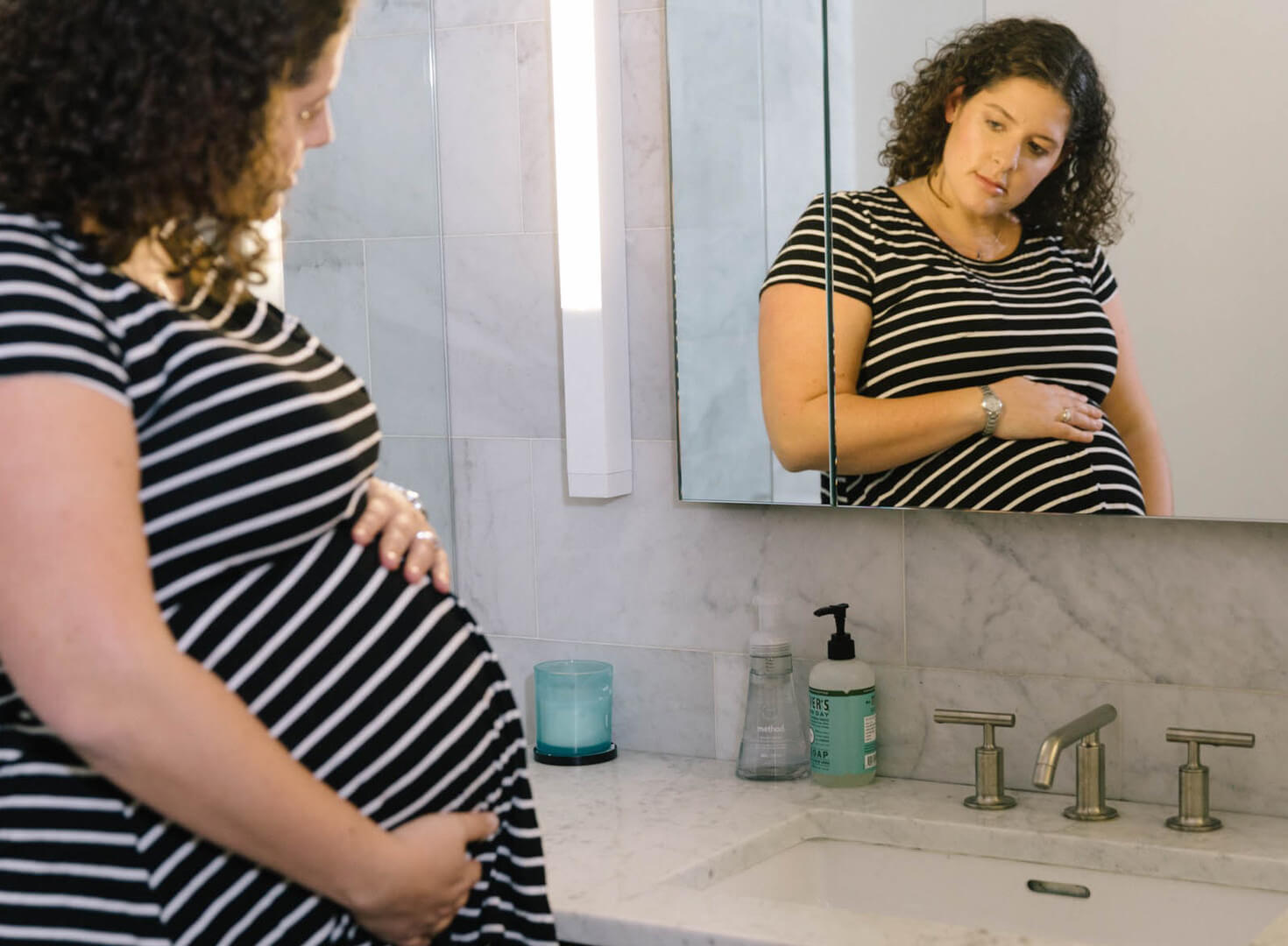8 Differences Between Being Pregnant In Your 20s Vs 30s, According To Science
Whether you're planning a pregnancy, or just thinking about your future family, it's typical to think about things like child-spacing, how many kids you want, and when to start trying to conceive. When making your pro/con list, you might also consider things like your health, your relationship, and your career. In other words, deciding to have a baby can be complicated. Like, is there an ideal age to be pregnant? Are there actual differences between being pregnant in your 20s versus your 30s. If so, how drastic are they?

It seems that being pregnant in your 20s and your 30s both have their pluses and minuses, depending on you, your life, and how you look at it. For instance, according to the American Congress of Obstetricians and Gynecologists (ACOG), getting pregnant in your 20s might be easier than in your 30s, due to declining fertility after age 32. Likewise, your risk of pregnancy complications and some birth defects goes up as you age, especially beyond age 35. However, delaying pregnancy might also have it's perks. BabyCenter reports that people in their 30s might be more financially stable and more emotionally ready to have a child. Plus, as an added bonus, research published in the Journal of Public Health shows that women who get pregnant in their 30s with their first child might actually live longer.
Choosing when to get pregnant is pretty much the most complex and personal choice a person can make. It seems that being pregnant in your 20s is not necessarily better than being pregnant in your 30s, it's just different and in the following ways.
It Might Be Easier To Conceive In Your 20s
According to the Mayo Clinic, your fertility declines as you age because the quantity and quality of eggs decreases. So, ACOG notes, it can be harder to get pregnant in your 30s, especially past age 32. According to BabyCenter, egg quality not only can impact your fertility, but it can also increase your risk of miscarriage from 10 percent in your 20s to 18 percent once you reach your mid 30s.
You Might Be In A Better Place Financially In Your 30s
As Ann Crittenden, author of The Price of Motherhood, told BabyCenter, when it comes to being able to afford costs related to your pregnancy, birth, and having babies, you might be better off waiting until your 30s to get pregnant. This is because you are more likely to be better-established in the workforce, and better able to weather the impact of parenthood on your career when you are older. According to Crittenden, "Women who have their children later in life have higher lifetime earnings and a wider range of opportunities than younger mothers."
You Might Have An Easier Pregnancy In Your 20s
As reported by Psychology Today, the optimal age for getting pregnancy, health-wise, is in your 20s. According to ACOG, women past age 35 are more likely to have health conditions like gestational diabetes and hypertension, birth complications like preterm labor, and babies with a chromosomal issues — the risk of which increases from 1 in 525 at age 20 to 1 in 200 at age 35.
You Might Be More Likely To Have Multiples In Your 30s
According to ACOG, women in their 30s are more likely to have multiples, like twins or triplets, than women in their 30s, even if they don't use reproductive technology to get pregnant.
You Might Be More Likely To Have A C-Section In Your 30s
According to ACOG, your risk of a C-section delivery increases in your 30s. As the Mayo Clinic notes, this is because you may be more likely to have pregnancy and birth complications than younger pregnant women.
You Might Recover More Quickly After Childbirth In Your 20s
When it comes to recovering from pregnancy, OB-GYN Steven Goldstein, MD told Parents that younger moms might have an easier time with physical recovery after childbirth.
Pregnancy Might Be Hard On Your Relationship In Your 20s
As psychotherapist Leah Seidler told BabyCenter, if you get pregnant in your 20s you might have a harder time coping with the way pregnancy might change your relationship with your partner, because you have less experience dealing with challenges and stress as a couple.
You Might Be Healthier If You Wait To Get Pregnant In Your 30s
One study published in Journal of Health and Social Behavior found that while getting pregnant in your 20s might be biologically optimal, it might actually be better for your long-term health to wait. Moms who delayed their first birth until about age 34 were found to have better health than those who had babies early. Likewise, a study published in the Journal of Public Health found that women who waited to have their first child in their 30s live longer than those who did in their 20s.
Source:https://www.romper.com/p/8-differences-between-being-pregnant-in-your-20s-vs-30s-according-to-science-9014138